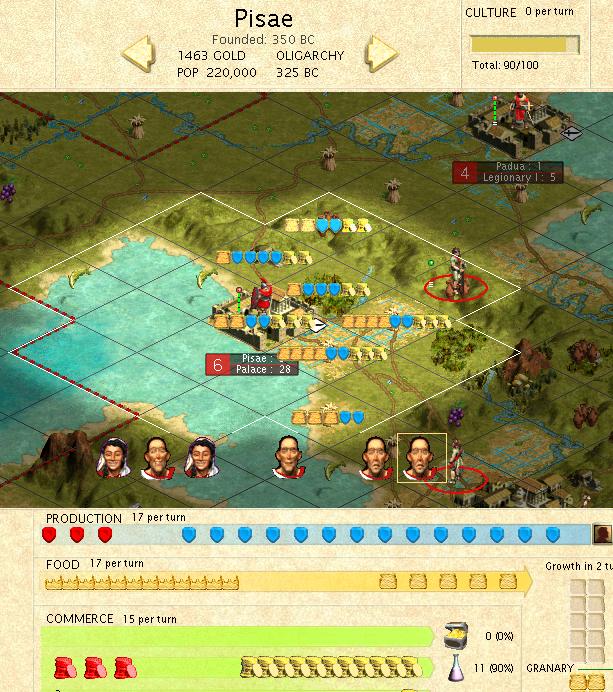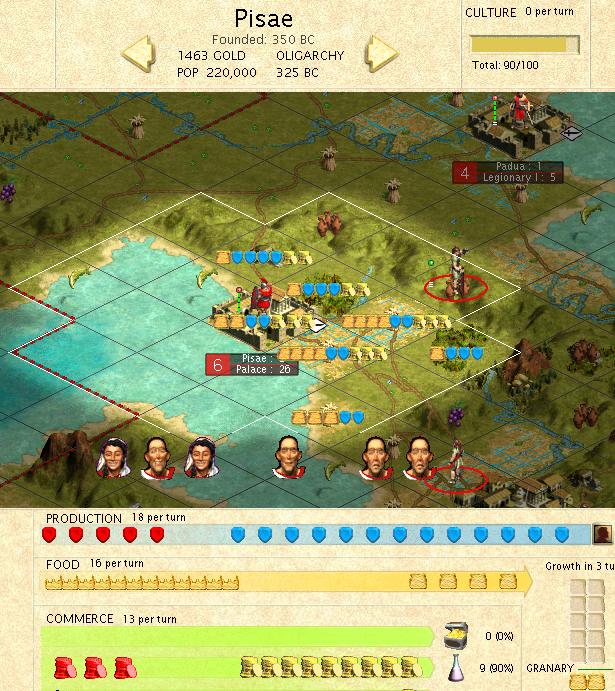SirPleb
Shaken, not stirred.
Description
When I reassigned a citizen to increase total production by one shield, waste increased by TWO shields.
I.e., I get better net production in this town if I reduce gross production. That should of course be impossible
Steps to reproduce
Load this save file then:
1. Go to Pisae's city screen
2. Note the current production
3. Move the citizen on the olive hills to the forest and observe the new production
Expected result: Net production should either remain the same or increase by one shield.
Observed result: Net production goes down by one shield.
Here's the city screen with 17 shields gross production, 14 after waste:

Here's the city screen after moving citizen from olive hills to forest, it now has 18 shields gross production, 13 after waste:

Additional comments
The save game is from the Rise of Rome scenario.
Rome is in a Golden Age at the time of this save.
When I reassigned a citizen to increase total production by one shield, waste increased by TWO shields.
I.e., I get better net production in this town if I reduce gross production. That should of course be impossible

Steps to reproduce
Load this save file then:
1. Go to Pisae's city screen
2. Note the current production
3. Move the citizen on the olive hills to the forest and observe the new production
Expected result: Net production should either remain the same or increase by one shield.
Observed result: Net production goes down by one shield.
Here's the city screen with 17 shields gross production, 14 after waste:

Here's the city screen after moving citizen from olive hills to forest, it now has 18 shields gross production, 13 after waste:

Additional comments
The save game is from the Rise of Rome scenario.
Rome is in a Golden Age at the time of this save.


 I think carlos is right, there's also some strange stuff in epic games (with default rules).
I think carlos is right, there's also some strange stuff in epic games (with default rules).

